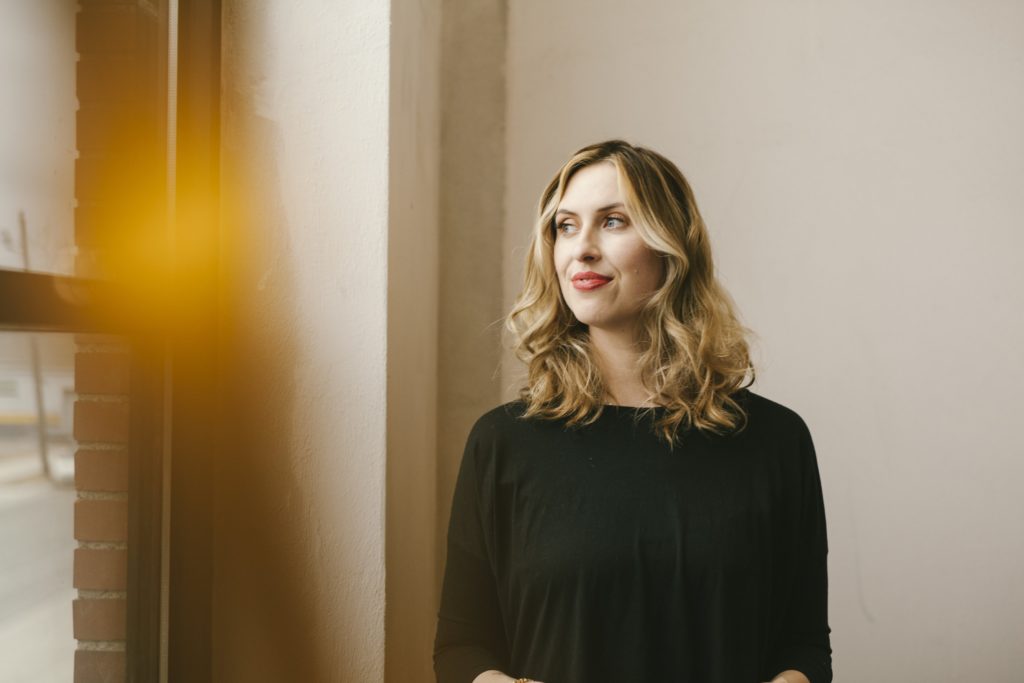Binging Nora McInerny can be a serious bummer. McInerny is the host of the morbid yet utterly compelling podcast “Terrible, Thanks for Asking.â€Â

McInerny lost her husband to brain cancer when he was just 35. McInerny’s father died and she suffered a miscarriage all within a few weeks of her husband’s passing. She wrote a memoir about her experience called It’s Okay to Laugh (Crying is Cool Too).Â
McInerny’s podcast – which my wife, Jody, and I consumed for hours straight on a recent road trip – alternates between the host vividly exploring her own grief and interviews she conducts with other people going through similarly trying times.Â
McInerny isn’t the only pain podcaster. “Everything Happens†is a program hosted by Kate Bowler who was diagnosed with Stage IV incurable colon cancer in her mid-30s.
Bowler is a professor at Duke Divinity School who previously wrote a book about the American Prosperity Gospel, a Christian creed that sees fortune as a blessing for those who believe. In her podcast, Bowler explores what it means to be dying in a community that insists everything happens for a reason – and what it’s like when she finds herself bereft of that certainty.
Grief podcasts are becoming a thing these days. There’s Jordan Ferber’s “Where’s My Grief?†Julia Samuels’s “Grief Works,†and “The Art of Dying Well†from St. Mary’s University in London.
All of these podcasts force listeners to grapple with the realization that life doesn’t always turn out to be as bright and shiny as they expected when they were younger. Faced with this gritty reality, how is it we still find joy in our lives? What exactly is happiness (and how can we achieve it when our bodies conspire to push us in the opposite direction)?
Long before I was diagnosed with my own chronic incurable cancer, I’d suffered from bouts of depression, anxiety and insomnia. (You would have thought all that was enough for one body, but you know, cancer.) Through trial and error, I hoped my psychiatrist and I would stumble upon the right cocktail – a single magic pill – that would lift the fog so I could feel some sort of equanimity for much of the day.
As I grew older, though, and I gained more experience with protracted disquietude, my expectations changed. Rather than seeking 100 percent pleasure all day, all of the time, I’ve become more content with just identifying “bubbles†of happiness. A good meal, stimulating conversation with friends, a trip abroad, passionate sex – bubbles of bliss floating in a boundless sea of dissatisfaction.
It’s the same with cancer, where there are precious few sure-fire solutions and sustained uncertainty is often the best we can hope for.
I savor my happiness bubbles. I grasp for them even though I know they must inevitably burst. Which got me thinking: is there a non-chemical way of creating more bubbles – or at least stabilizing them so that they last longer before they’re gone?
The very pursuit of happiness may be part of the problem.
Studies show that “people putting the greatest emphasis on being happy reported 50% less frequent positive emotions,†Dr. Todd Kashdan writes in Psychology Today. “Thirty-five percent had less satisfaction about their life and 75% had more depressive symptoms than people who had their priorities elsewhere.â€
“Happiness cannot be pursued, it must ensue,†Victor Frankl opined in his post-Holocaust masterwork, Man’s Search for Meaning. “One must have a reason to be happy.â€
Dr. Micah Goodman, who founded and directs the Ein Prat Leadership Institute, suggests that this can be best accomplished through fashioning a life of purpose.
We are happiest, Goodman explains, when we become part of a story that begins before we’re born and that will end, hopefully, long after we’re gone.
That could be as grand as a shared cause – a political passion, caring for the Earth – or as particular as a club or hobby. Religion is an especially effective path to purpose, Goodman says.
Happiness guru and former Harvard University lecturer Tal Ben-Shahar agrees. “Happiness lies at the intersection between pleasure and meaning,†he writes.
I like Goodman’s approach, but I fret he may have overlooked an essential part of human nature. If happiness increases when we’re part of a project that we won’t live to see the end of, then why are so determined to cheat death?
Yuval Noah Harari points out in his book Homo Deusthat in the 21stcentury, “Humans are likely to make a serious bid for immortality.â€
Death is essentially a “technical glitch,†Harari writes. And “every technical problem has a technical solution.†Some experts believe humans may overcome death as early as the year 2100.
Woody Allen would be down for that – even if he won’t be around that long. When asked once if he hoped to live on forever through the silver screen, the director quipped that “I’d rather live on in my apartment.â€
Harari ultimately argues the opposite is true. “A large part of our artistic creativity, our political commitment and our religious piety is fueled by the fear of death,†he writes.
As, it seems, is our happiness.
Internalizing that our time on earth is limited may be a cliché, but it can nevertheless help us derive meaning from the moment; to appreciate happiness when it comes, like transitory bubbles, which necessarily pop like soap but are utterly intoxicating when we open ourselves up enough to acknowledge their fleeting existence.
Maybe Nora McInerny should do a podcast episode about that.
I first burst my bubbles in The Jerusalem Post.

